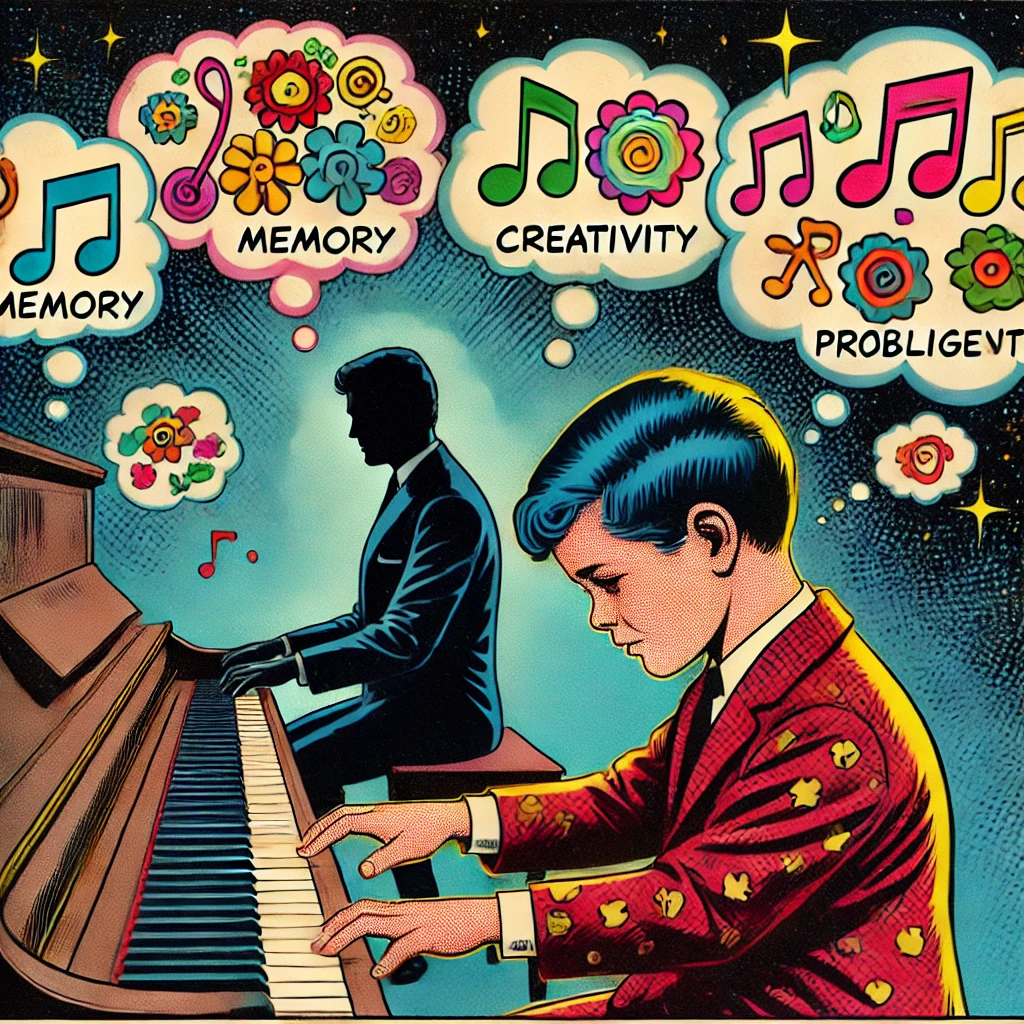Long Term Effects of Childhood Music Instruction on Intelligence and General Cognitive Abilities
Abstract
This article reviews research on the effects of music instruction on general cognitive abilities. The review of more than 75 reports shows (1) the consistency in results pertaining to the short-term effects of music instruction on cognitive abilities and the lack of clear evidence on the long-term effects on intelligence; (2) the complex nature of the relationship between music instruction and intellectual measures due to the intervention of factors associated with who is interested, studies, perseveres, and succeeds in learning music; and (3) the importance of music practice on the long-term cognitive benefits of music instruction.
Content
The Long-Term Effects of Childhood Music Instruction on Intelligence and General Cognitive Abilities
Eugenia Costa-Giomi1
1University of Texas at Austin, Austin, TX, USA
Eugenia Costa-Giomi, University of Texas at Austin, 2406 Robert Dedman Drive, Stop E3100, Austin, TX 78712, USA. Email: costagiomi@austin.utexas.edu
Abstract
This article reviews research on the effects of music instruction on general cognitive abilities. The review of more than 75 reports shows (1) the consistency in results pertaining to the short-term effects of music instruction on cognitive abilities and the lack of clear evidence on the long-term effects on intelligence; (2) the complex nature of the relationship between music instruction and intellectual measures due to the intervention of factors associated with who is interested, studies, perseveres, and succeeds in learning music; and (3) the importance of music practice on the long-term cognitive benefits of music instruction.
http://upd.sagepub.com/content/early/2014/07/10/8755123314540661.abstract
Research on the long-term effects of childhood music instruction on intelligence and general cognitive abilities has yielded mixed findings, with some studies suggesting positive effects while others find limited or no impact. Here are some key points from the existing literature:
1. Enhanced Cognitive Skills: Some studies have suggested that childhood music instruction can lead to improvements in certain cognitive skills, such as memory, attention, executive function, and spatial reasoning. These skills are often associated with higher intelligence and academic achievement.
2. Transfer Effects: The extent to which the cognitive benefits of music instruction transfer to non-musical domains remains a subject of debate. While some research suggests that music training may enhance cognitive abilities that are relevant to academic learning and problem-solving, other studies have failed to find consistent evidence of transfer effects beyond music-related tasks.
3. Timing and Duration: The timing and duration of music instruction may play a role in determining its long-term effects on cognitive development. Some research suggests that starting music lessons at an early age and engaging in sustained, intensive practice over several years may be associated with greater cognitive benefits.
4. Individual Differences: Individual differences in factors such as motivation, aptitude, socioeconomic status, and parental involvement may moderate the effects of music instruction on cognitive outcomes. Children who are highly motivated and have supportive home environments may derive greater cognitive benefits from music training.
5. Methodological Challenges: Studying the long-term effects of childhood music instruction poses methodological challenges, including the difficulty of controlling for confounding variables, the reliance on retrospective self-report measures, and the potential for selection bias in longitudinal studies.
6. Heterogeneity of Findings: Research findings on the long-term effects of music instruction on intelligence and cognitive abilities are heterogeneous, with some studies reporting significant positive effects, while others find no or minimal impact. Meta-analyses of the literature have yielded mixed results, with effect sizes varying depending on the outcome measures and study designs.
Overall, while there is evidence to suggest that childhood music instruction may have some positive effects on intelligence and cognitive abilities, the magnitude and consistency of these effects remain uncertain. Future research using rigorous experimental designs and longitudinal methodologies is needed to better understand the causal mechanisms underlying the relationship between music training and cognitive development over time.
